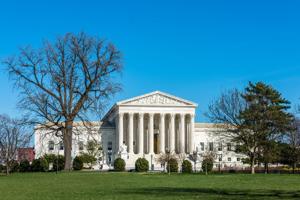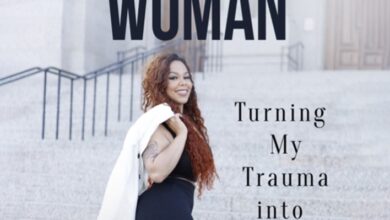Maine religious freedom case appealed to U.S. Supreme Court

(The Center Square) – Another religious freedom case has been appealed to the U.S. Supreme Court, this time from the state of Maine.
Last November, the high court ruled in favor of religious institutions that brought a lawsuit against New York Gov. Andrew Cuomo.
In December, the Ninth Circuit Court of Appeals ruled in favor of Nevada churches – Calvary Chapel Dayton Valley and Calvary Chapel Lone Mountain – in their lawsuits against Nevada Gov. Steve Sisolak’s cap of 50 people meeting in person to worship.
On Feb. 6, the Supreme Court ruled against California Gov. Gavin Newsom and lower court rulings in two religious freedom cases, one of which was brought by the nonprofit religious freedom organization, Liberty Counsel. The other was brought by the Thomas More Society, which won the New York case.
Now, Liberty Counsel has filed another emergency petition with the Supreme Court, this time on behalf of Calvary Chapel of Bangor, Maine. The complaint asks the court to issue an injunction pending appeal and/or to vacate the lower court decisions regarding Maine Gov. Janet Mills’ orders solely against houses of worship.
The church’s lawsuit and appeals process began in May 2020 and reached the First Circuit Court of Appeals by September, when Liberty Counsel presented oral arguments before its three-judge panel. On Dec. 22, 2020, even after the Supreme Court and Ninth Circuit had ruled on similar issues, the Appeals Court dismissed the church’s appeal without prejudice “for lack of appellate jurisdiction,” ultimately prompting Liberty Counsel to appeal to the Supreme Court.
Following the decisions of the Ninth Circuit and the Supreme Court’s ruling on two New York and two California cases, “Maine now has the dubious distinction of imposing the most severe restrictions in the nation on places of worship with its 50-person numerical cap notwithstanding the size of the facility,” Liberty Counsel states.
Mills’ initial order prohibited all religious gatherings, including outside parking lot services, with violations carrying criminal penalties of up to six months in jail and $1,000 fines per violation. The order was later amended several times and currently limits religious gatherings to no more than 50 people despite the size of the building. In order to open with the 50-person cap, houses of worship are required to apply to the state government to get permission, and upon approval, display a badge on the outside of the building.
But most egregious, Liberty Counsel argues, is that Mills determined that houses of worship could hold “secular but not religious” activities, including providing food, shelter and social services to an unlimited number of people, but as soon as any activity becomes “religious” in nature a 50-person limit was imposed with penalties.
Although Calvary Chapel serves the needs of the greater community, the heart of the ministry is its yearlong live-in recovery program for addicts, the church says. At any given time, 48 people “relearning life” live on church property. Their lives and activities cannot be relegated into secular versus religious categories, its pastor, Ken Graves, argues.
The governor deemed services for substance addiction as “essential” and permitted secular services in the same church building where she also prohibited the same people from participating in religious services, according to the lawsuit. Those in recovery were permitted to meet for substance abuse support but were prohibited from participating in a yearlong program that includes studying the Bible, praying and worshiping.
“The moment a Bible is opened – even as part of a life skills, food, shelter or addiction program – the entire operation violates Gov. Mills’ illegal orders,” Liberty Counsel Founder and Chairman Mat Staver said in a statement.
Mills’ order has always designated liquor stores, marijuana dispensaries, big box and supercenter stores as essential commercial and non-religious entities. Capacity limitations were never imposed on them nor were they threatened with criminal sanctions, Liberty Counsel notes. Yet the very place – houses of worship – where those in recovery might find help were forced to remain closed.
In the Supreme Court’s New York ruling in Roman Catholic Diocese of Brooklyn v. Cuomo and Agudath Israel v. Cuomo, Justice Neil Gorsuch wrote, “There is no world in which the Constitution tolerates color-coded executive edicts that open liquor stores and bike shops but shutter churches, synagogues, and mosques.”
Referring to this ruling and the recent California ruling, Liberty Counsel Founder and Chairman Mat Staver said, “The U.S. Supreme Court has already ruled against these unconstitutional worship bans and Governor Janet Mills has continued to discriminate against churches and places of worship. The Governor’s unconstitutional actions must end.”
On February 6, the Supreme Court reprimanded the lower courts in California for not following its instructions in prior religious liberty rulings. Gorsuch wrote that the court’s order “should have been needless; the lower courts in these cases should have followed the extensive guidance this Court already gave.”
Disclaimer: This content is distributed by The Center Square

